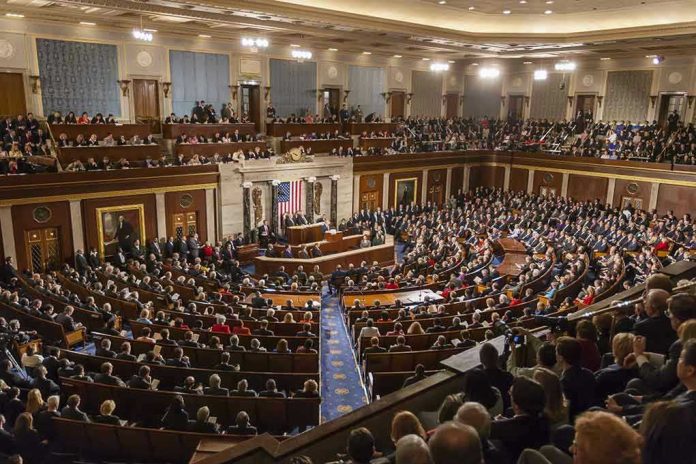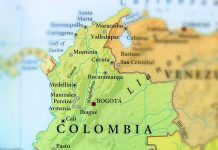
When Congress swings its gavel at the White House’s environmental agenda, the ground beneath American energy policy shifts—and you’re about to see why the latest Alaska and Wyoming showdown is more than a political spat.
Story Snapshot
- The House repeals Biden administration drilling and mining restrictions in Alaska and Wyoming
- Republicans claim new regulations stifle U.S. energy independence and economic growth
- Environmental advocates warn of long-term ecological and climate risks
- The fate of American resource policy now sits at the crossroads of politics, profit, and preservation
House Scraps Restrictions: A Clash Over American Energy
House lawmakers delivered a political broadside to the Biden administration’s environmental restrictions on drilling and mining in northern Alaska and Wyoming. The vote, loud and clear, rolled back recent rules that Republicans argue have throttled the nation’s ability to tap its own natural resources. At stake: not just the future of public lands, but the very definition of “energy dominance” in a world fracturing over climate change and global supply chains.
Republicans painted the restrictions as bureaucratic overreach, citing the economic lifeblood provided by drilling and mining to rural states. They argue these policies undercut jobs, tax revenue, and domestic security. On the House floor, advocates described the Biden-era limitations as an existential threat to working families and national prosperity. The narrative: American energy in hand, or American energy outsourced—to rivals and adversaries.
Environmentalists Sound the Alarm: What Gets Lost
Environmental groups and many Democrats counter that the rollback risks long-term damage for short-term gain. They warn that increased drilling and mining will accelerate habitat loss in fragile Arctic and Western ecosystems, threaten Indigenous communities, and worsen global warming. To them, the House’s action is a retreat from hard-won protections, jeopardizing the balance between economic development and environmental stewardship.
Proponents of the original restrictions highlight scientific assessments: drilling in Alaska’s North Slope, for example, affects caribou migration and disrupts the region’s delicate permafrost. In Wyoming, expanded mining means more fragmented landscapes and water risks. The tension is elemental—energy jobs versus ecological inheritance, with little middle ground offered in the current debate.
Energy Independence, Economic Stakes, and the Power Play
Alaska and Wyoming are no strangers to resource politics. Both states depend heavily on oil, gas, and mineral royalties to fund schools, infrastructure, and public services. Congressional supporters of the rollback say the Biden policies effectively handcuffed local economies, making federal lands off-limits and stalling leases that could fuel growth. The House vote, then, wasn’t just a policy reversal—it was a statement of values, wrapped in the promise of self-sufficiency.
Yet the national conversation is now deeply polarized. Supporters of the restrictions see the rollback as a reckless gamble, especially as climate disasters become routine headlines. Detractors argue that American innovation, not regulation, is the path to cleaner energy—if only government would get out of the way. In the middle are everyday Americans, watching gas prices, utility bills, and the headlines, wondering who is right—and who will blink first.
What Happens Next: The Uncertain Road Ahead
The House vote is only the first act. The Senate must still weigh in, and legal battles loom regardless of the outcome. The White House has signaled a veto. Meanwhile, global markets and America’s allies are watching closely, wary of both U.S. volatility and the environmental costs of energy expansion. For residents of Alaska and Wyoming, the debate is more than theoretical. It’s about jobs, culture, sovereignty, and the promise—or peril—of the next drilling rig or mining claim.
As Congress and the courts wrestle with the future, one thing is clear: the fight over drilling and mining in Alaska and Wyoming is about far more than maps and minerals. It’s a referendum on what kind of energy future America really wants—and who gets to decide. The dust is far from settled, and the next chapter could redraw not just policy, but the American landscape itself.
Sources:
House votes to kill Biden-era curbs on drilling, mining










